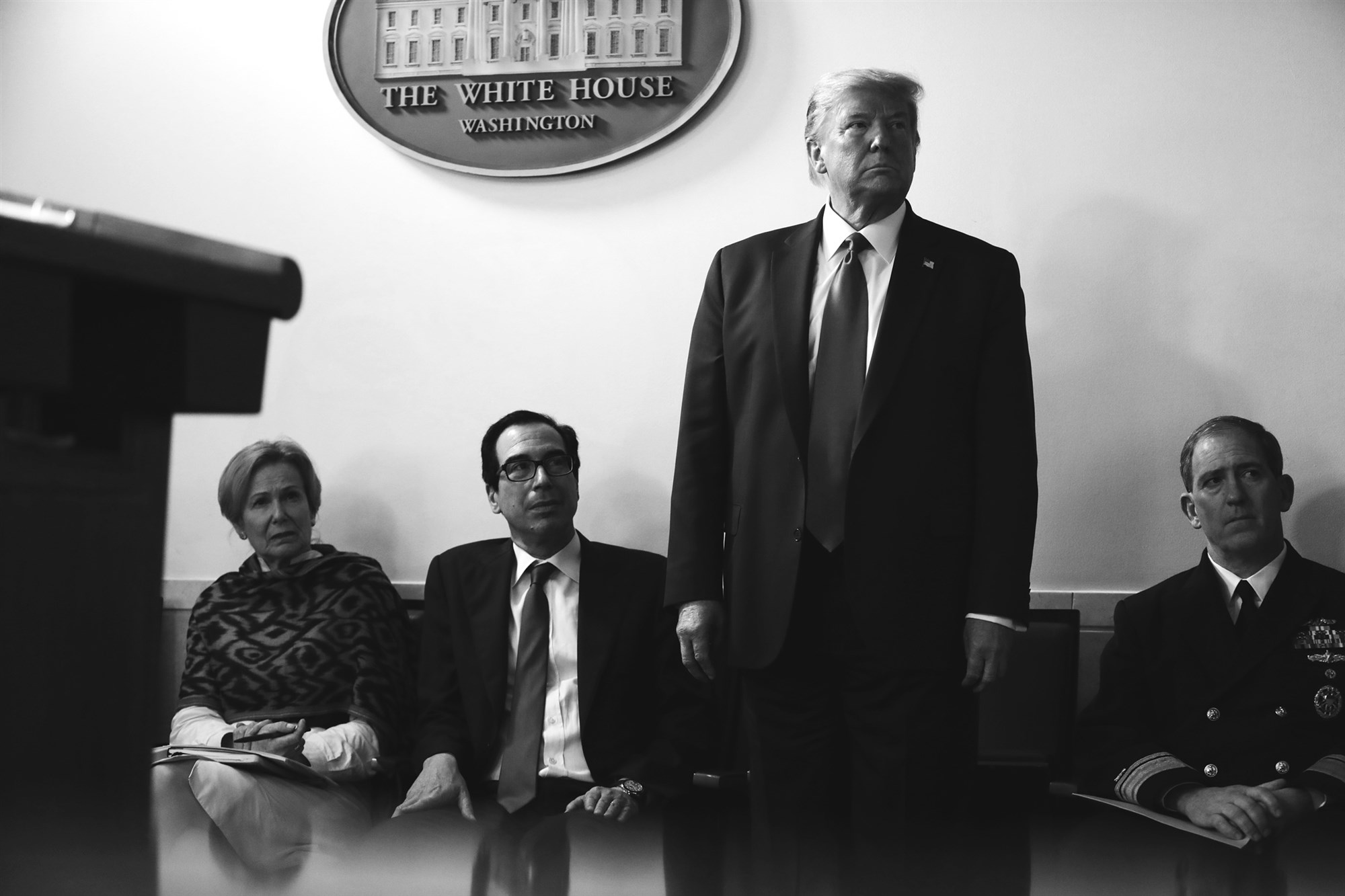WASHINGTON — The federal government placed orders for well over 100,000 new body bags to hold victims of COVID-19 in April, according to internal administration documents obtained by NBC News, as well as public records. The biggest set was earmarked for purchase the day after President Donald Trump projected that the U.S. death toll from the coronavirus might not exceed 50,000 or 60,000 people.
That batch is a pending $5.1 million purchase order placed by the Department of Homeland Security on April 21 with E.M. Oil Transport Inc. of Montebello, California, which advertises construction vehicles, building materials and electronics on its website. The “human remains pouches” have not been paid for or shipped to the Federal Emergency Management Agency yet, according to the company’s marketing manager, Mike Pryor.
“I hope to God that they don’t need my order and that they cancel it,” Pryor said in a text message exchange with NBC News.
Body bag contracts bid by Homeland Security and the Veterans Affairs Department are just one illustration of how Trump’s sunny confidence about the nation’s readiness to reopen is in conflict with the views of officials in his own administration who are quietly preparing for a far worse outcome.
Around the same time it wrote the contract for the body bags, FEMA opened up bidding to provide about 200 rented refrigerated trailers for locations around the country. The request for proposals specifies a preference for 53-foot trailers, which, at 3,600 cubic feet, are the largest in their class.
The cache of internal documents obtained by NBC News includes an April 25 “pre-decisional draft” of the coronavirus task force’s “incident outlook” for the response, a summary of the task force leaders’ meeting the same day and various communications among officials at several agencies. The documents show that task force members remain worried about several major risks ahead, including insufficient availability of coronavirus tests, the absence of a vaccine or proven treatments for the coronavirus, and the possibility of a “catastrophic resurgence” of COVID-19.




